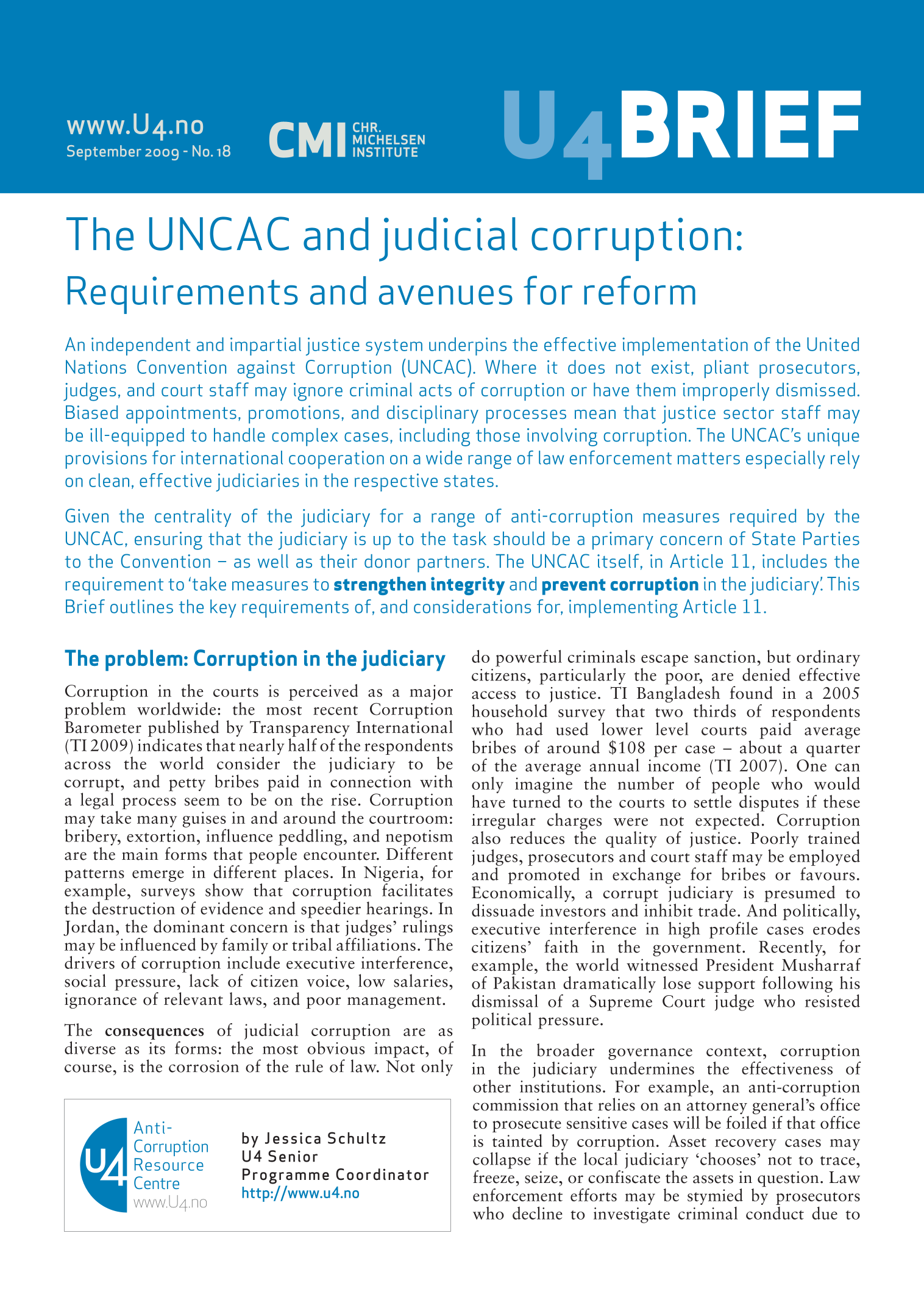U4 Brief
The UNCAC and judicial corruption: Requirements and avenues for reform
An independent and impartial justice system underpins the effective implementation of the United Nations Convention against Corruption (UNCAC). Where it does not exist, pliant prosecutors, judges, and court staff may ignore criminal acts of corruption or have them improperly dismissed. Biased appointments, promotions, and disciplinary processes mean that justice sector staff may be ill-equipped to handle complex cases, including those involving corruption. The UNCAC’s unique provisions for international cooperation on a wide range of law enforcement matters especially rely on clean, effective judiciaries in the respective states.
Given the centrality of the judiciary for a range of anti-corruption measures required by the UNCAC, ensuring that the judiciary is up to the task should be a primary concern of State Parties to the Convention – as well as their donor partners. The UNCAC itself, in Article 11, includes the requirement to ‘take measures to strengthen integrity and prevent corruption in the judiciary’. This Brief outlines the key requirements of, and considerations for, implementing Article 11.

Cite this publication
Schultz, J.; (2009) The UNCAC and judicial corruption: Requirements and avenues for reform. Bergen: U4 Anti-Corruption Resource Centre, Chr. Michelsen Institute (U4 Brief 2009:18)
Disclaimer
All views in this text are the author(s)’, and may differ from the U4 partner agencies’ policies.
This work is licenced under a Creative Commons Attribution-NonCommercial-NoDerivatives 4.0 International licence (CC BY-NC-ND 4.0)